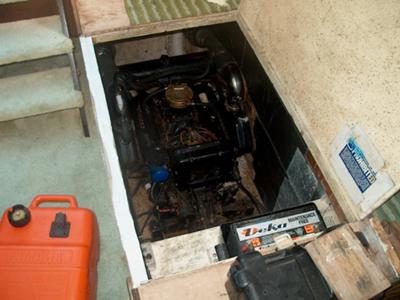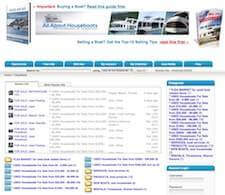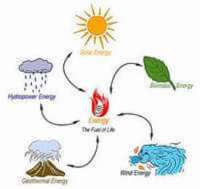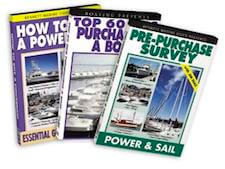Grab your free gift, our online Houseboat Magazine, when you sign up!

Houseboat Fuel Problems - ethanol gas, water condensation, and gummy carburetors
by Russell
(N Fort Myers, Fl)
We're trying to troubleshoot houseboat fuel problems, and there's water condensation, ethanol gas, and gummy carburetors that are causing an ongoing persistent fuel problem.
We have a 57 foot Carri Craft houseboat and we carry about 400 gallons of fuel and another 100 for the generator. The tanks are stainless and in good shape. There are 4 fuel filter/water separators on each side.
Two of the filters in the tank room, and another two filters in the engine room BEFORE the inline filter and the ceramic one inside the carburetors. It seems to me that this should be more than sufficient to stop anything in the fuel system that does not belong. Wrong answer!
I constantly have water and a sticky heavy substance gumming up the carburetors. I have rebuilt the carbs last week and restarted the engines on a 6 gallon fuel can. They run beautifully. On a hunch I disconnected the fuel supply at the carbs and run a line into a jug to see what was in the lines.
The fuel deposited in the jug was the nastiest fuel I have ever seen in over 50 years of working on boats. There was so much water and sediment that I could not believe it.
These tanks were supposed to have been cleaned out about 6 months ago and had fresh fuel added. It seems that if the fuel sets for any length of time; 6 months or there about, the fuel seems to create its own water. I think condensation is a possibility but why so much?
Someone told me that these new fuels that contain ethanol tend to condensate more water than gas that does not contain ethanol. Does anyone know if this is true? One guy at our marina said that the fuel that has an even higher amount of additives can get real nasty in a very short time.
I never thought about the fuel having an organic based additive (corn) could do such a thing. This person said that some stations even went up to and beyond the 10% posted on the pumps because it was a way to save a few dollars more on the fuel cost.
Like a lot of other boaters I have gone to the local gas station and gotten a couple of 5 gallon gas cans loaded to carry home with me.
For some reason the marine fuel with the supposed "no road tax" fuel costs way more than regular fuel at the pump. If the road use taxes have been lifted the fuel should cost less, not more.
If anyone is looking to ask me questions about the shelf life of fuel don't bother. I have no idea.
Water leak into tank? Not likely, there are three tanks and the same problem rears it's head in all of them.
The only thing common to all the tanks seems to be the fuel. The engines are well taken care of and in good condition.
I was just wondering if I am alone on this or not.
Any clues, Russell in N. Fort Myers, FL
 increase sales and profits with targeted traffic? Act now to get our 1/2 price sale, limited offer |
Reply - Answer
Well Russell, sorry to hear about your fuel problems. You are not alone as my neighbor is suffering from the same situation, and his boat also came from Florida.
He had the carbs totally rebuilt as they had enormous amounts of crud, sediment, and a gelatin gummy substance blocking all the orifices. His carbs were dripping fuel and overflowing, instead of vaporizing the fuel.
We have pumped the bottom of his tanks, and they appear to have a rust colored, water gummy substance on the bottom. As always, his fuel tanks are not easily accessible. Once he rebuilt the carbs, he ran the engines on two external 5 gallon tanks of fresh fuel, and they ran like new.
Now the big questions is, is this scenario coming from ethanol based fuel, or is it a storage preservative issue?
Lastly, hopefully some of our readers will share and post comments about their houseboat fuel problems, tips, and experiences. Feel free to use the "Click here to post comments." link found near the bottom of this page.
Thanks again for sharing, IAN from all-about-houseboats
Free Bonus Offer |
Comments for Houseboat Fuel Problems - ethanol gas, water condensation, and gummy carburetors
|
||
|
||
|
||
|
||
|
||
|
||
|
||
|
||
|
||
|
||
|
||
|
||
|
||
|
||
|
||
|
||
|
||
|
||














